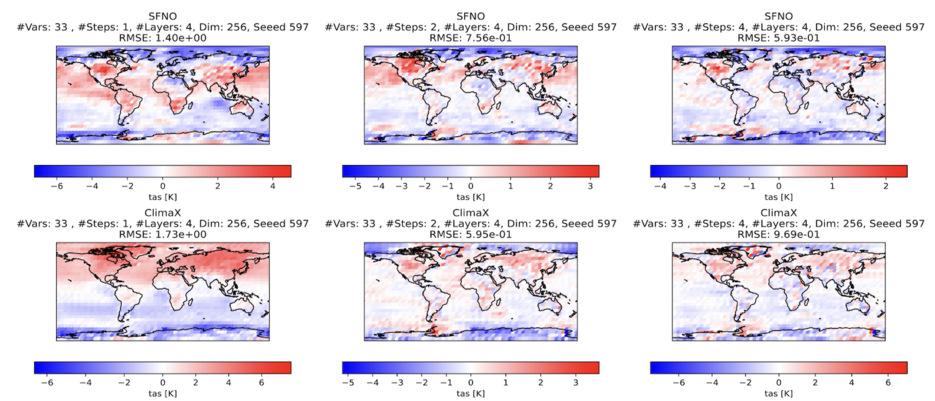Our paper „Exploring Design Choices for Autoregressive Deep Learning Climate Models“ has been accepted at the ICLR25 TCCML Workshop
11.03.2025We’re excited to share that our paper, “Exploring Design Choices for Autoregressive Deep Learning Climate Models,” has been accepted to the Tackling Climate Change with Machine Learning (TCCML) Workshop at ICLR 2025!
Our work dives into the key hyperparameter choices that allow global deep learning weather models to generate stable 10-year forecasts. We find that while some architectures handle hyperparameter variations better than others, all models can remain sensitive to factors like the random seed and choice of prognostic variables.
Abstract:
Deep Learning (DL) models have achieved state-of-the-art performance in medium-range weather prediction (MWP) but often fail to maintain physically consistent rollouts beyond 14 days. In contrast, a few atmospheric models demonstrate stability over decades, though the key design choices enabling this remain unclear. This study quantitatively compares the long-term stability of three prominent DL-MWP architectures — FourCastNet, SFNO, and ClimaX — trained on ERA5 reanalysis data at 5.625 degree resolution. We systematically assess the impact of autoregressive training steps, model capacity, and choice of prognostic variables, identifying configurations that enable stable 10-year rollouts while preserving the statistical properties of the reference dataset. Notably, rollouts with SFNO exhibit the greatest robustness to hyperparameter choices, yet all models can experience instability depending on the random seed and the set of prognostic variables.


